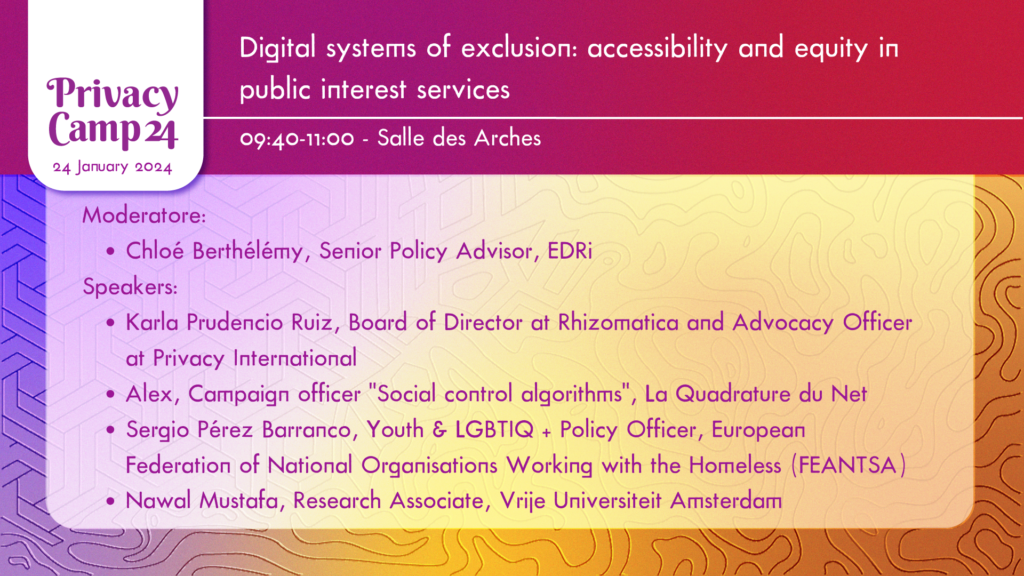
In a post-COVID society, the premise that everyone should be connected seems ever more indisputable. Social distancing rules accelerated the digitisation of nearly every aspect of daily life. This includes access to basic public services and the exercise of fundamental rights, such as social benefits, tax returns, education, health, access to information, political participation, etc. Public administration is strongly affected by the dominant neoliberal ideology which centers digital technologies in its promise of increased flexibility, effectiveness and time gains.
However, the forced march towards the ubiquitous digital life comes with multiple negative impacts, especially on the most marginalised groups in society. As more of states’ administrative and welfare services move online, the autonomy, agency and rights of homeless, undocumented and elderly people, people with disabilities and low-income groups are undermined. The principle of equality in accessing public services is no longer guaranteed.
Not only does digitisation increases the risk of people not using their rights, it also generates violence against those who are already socially excluded. The replacement of persons providing services to individuals with technological systems is often a vehicle for the introduction of social control and surveillance technologies that specifically target racialised communities. In 2021, the Dutch government resigned over a scandal where the tax authorities sanctioned parents of dual nationalities and ethnic minorities via the use of an algorithm that was supposedly predicting who is likely to wrongly claim child benefits. Digitisation normalises discriminatory and harmful systems like predictive identification and risk scoring systems. More generally, it shifts resources and policies within the public sector towards systems of surveillance and punishment and away from approaches focusing on care and well-being.
This panel will bring together experts to discuss how technological systems deployed in the public sector, such as national identification programmes and digitised basic services, carry risks of surveillance, profiling, exclusion and privacy violations.
Moderator:
- Chloé Berthélémy, Senior Policy Advisor, EDRi
Speakers:
- Karla Prudencio Ruiz, Board of Director at Rhizomatica and Advocacy Officer at Privacy International
- Alex, Campaign officer “Social control algorithms”, La Quadrature du Net
- Sergio Pérez Barranco, Youth & LGBTIQ + Policy Officer, European Federation of National Organisations Working with the Homeless (FEANTSA)
- Nawal Mustafa, Research Associate, Vrije Universiteit Amsterdam